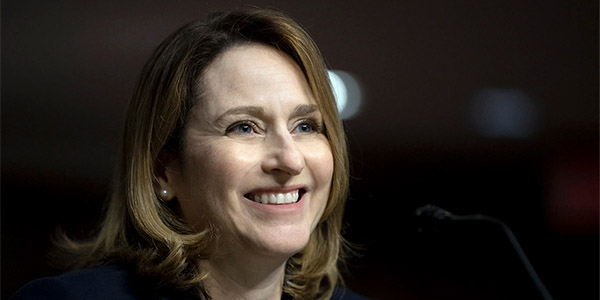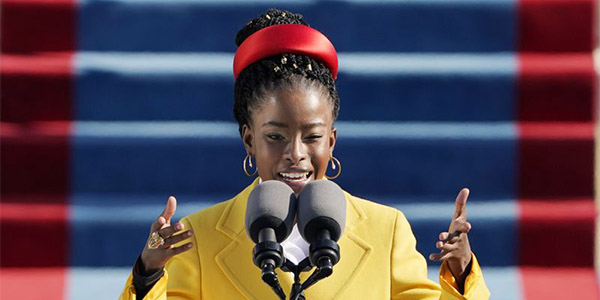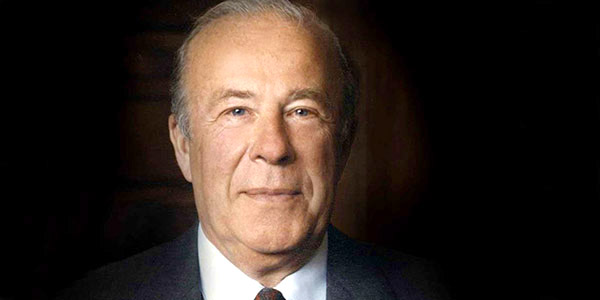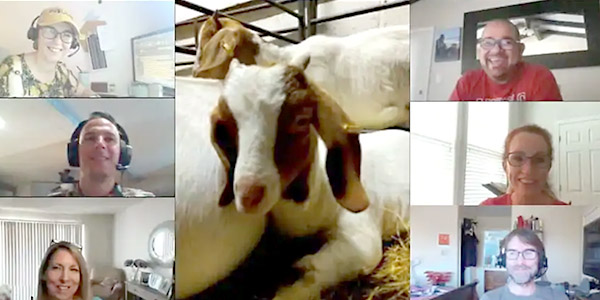MIT SCHOOL OF HUMANITIES, ARTS, AND SOCIAL SCIENCES
Media + Awards Digest | February 2021

The Media + Awards Digest is a section of the Said and Done newsletter. Subscribe
Office of the Dean | 17 February 2021
Dear Friends,
On President’s Day this year, I was reminded of a speech by John F. Kennedy, referencing many of the challenges we face today.
“Let us not be blind to our differences—but let us also direct attention to our common interests and to the means by which those differences can be resolved. And if we cannot end now our differences, at least we can help make the world safe for diversity. For, in the final analysis, our most basic common link is that we all inhabit this small planet. We all breathe the same air. We all cherish our children's future. And we are all mortal.”
In this edition of the Media Digest, you will find works that speak to these common interests and offer approaches for fulfilling them: Professor of Economics David Autor is quoted in the Associated Press and The New York Times about the post-pandemic labor force and the need to create an economy, capable of lifting more boats, bringing more equity to our culture. His research on the promising Paycheck Protection Program is also featured in The Washington Post.
In an op-ed in The New York Daily News, Associate Professor of Literature Sandy Alexandre upholds the humanities—“the power of history, language, the imagination, critical thinking, and hope”—as one of the profound sources of knowledge and insight for leadership in our world: “When you decenter yourself to prioritize your nation’s people who are tired, poor, and yearning to breathe free of ventilator machines and police brutality, then you have read the room accurately and have determined that attentive listening and decisive action are necessary to lead.”
Our Security Studies researchers continue to analyze and shed light on efforts to find stability among world rivals. In his latest appearance on WBUR, Senior Research Associate Jim Walsh covers the new U.S.-Russia START treaty. In Forbes, Associate Professor of Political Science Vipin Narang comments on India’s new missile defense system and possible U.S. sanctions, while the country’s farmer protests are examined in a Washington Post essay co-authored by Political Science PhD candidate Aidan Milliff.
Delight is also of enduring common interest for human life, and in a piece on a recent trend that involves friendly goats paying visits to Zoom meetings, The Washington Post turns for insight to MIT historian Harriet Ritvo, renowned for her scholarship on human-animal relationships. Ritvo is not surprised that the goats are going over well!
In closing, I wish to congratulate two of our distinguished alumni. Mario Draghi, PhD ‘76 in Economics, has been sworn in as the new Prime Minister of Italy. Taking on leadership role in a time of crisis, Draghi shoulders the challenges of overcoming the pandemic, offering answers to citizens’ daily problems, and relaunching the Italian economy. Kathleen Hicks, PhD ’10 in Political Science/Security Studies, has been sworn in as the U.S. Deputy Secretary of Defense. With a strong background in global and regional defense policy and strategy, Hicks is now the second highest ranking officer in the Department of Defense.
We are deeply grateful for the expertise and public service of these and other of our alumni in this time of challenge and potential across the world.
With best wishes for late winter,
Melissa
Melissa Nobles
Kenan Sahin Dean
Professor of Political Science
MIT School of Humanities, Arts, and Social Sciences
HONORS AND AWARDS

Kathleen Hicks '10, U.S. Deputy Secretary of Defense; photo via DOD
POLITICAL SCIENCE / SECURITY STUDIES PROGRAM
Kathleen Hicks '10 sworn in as Deputy Secretary of Defense
Hicks, an alumna of our Political Science/Security Studies Program, and a distinguished career civil servant is now the second highest ranking officer in the Department of Defense. During her confirmation hearing, Hicks said she looks forward to working "alongside women and men — civilian and military — who dedicate their lives to our national defense. They are my colleagues and friends, and I could not be prouder at the prospect of serving with them once more."
Story via Defense News
LITERATURE
Ivy Li '20 awarded the 2020 Louis Kampf Writing Prize
Li, who graduated with a double major in Course 9 and 21L, has received the Louis Kampf Writing Prize 2020 for poetry.
Li's winning poem | Kampf Writing Prize winners
WRITING + WOMEN'S AND GENDER STUDIES
Helen Elaine Lee wins Dr. Martin Luther King Leadership Awards
Professor Lee was nominated for her tireless work to support students, the MIT community, and the greater Boston area community.
Announcement from MIT WGS
SCIENCE, TECHNOLOGY, AND SOCIETY / HASTS DOCTORAL PROGRAM
Kelcey Gibbons, PhD student, is the first recipient of Shapiro Fellowship
Gibbons, an MIT PhD student studying the history of Black computer professionals and Black technological education, is the inaugural recipient of the Graduate Fellowship in the History of African American Experience of Technology. The fellowship honors L. Dennis Shapiro '55, an electronics engineer with a life-long interest in American History.
Story via STS | Kelcey Gibbons MIT webpage

L to R: Ivy Li '20; photo by Jon Sachs; Kelcey Gibbons, PhD student in STS; L. Dennis Shapiro '55
MEDIA DIGEST
STRENGTHENING DEMOCRACY

American poet Amanda Gorman; Photo by Patrick Semansky, AFP via Getty Images
NEW YORK DAILY NEWS
Biden and the Humanities | Sandy Alexandre
"When you read, understand and choose to learn from history, your actions are aligned with a belief in the humanities’ importance as a guiding principle. ... Presidents who are vocal about believing in science should also be vocal about their support of the humanities — the power of history, language, the imagination, critical thinking and hope. ...The long arm of their appreciation, or lack thereof, is inevitably reflected in our zeitgeist."
Commentary
THE NEW YORK TIMES
GOP tries to make it harder to vote | Stanford-MIT Healthy Elections
“There's going to be a rush in the next year to legislate certain types of election reforms,” said Nate Persily, a Stanford University law professor and co-director with MIT Professor Charles Stewart III of the Stanford-MIT Healthy Elections Project. “The jury is still out on whether the lesson from this election will be that we need to make voting as convenient as possible, or whether there will be a serious retrenchment that makes voting less accessible.”
Story
ECONOMICS / REMEMBERING GEORGE P. SHULTZ, PhD '49

George P. Shultz, top Cabinet official under Nixon and Reagan, dies at 100
Shultz, PhD '49 (Economics), carried one of Washington’s weightiest résumés — labor secretary, treasury secretary and budget director for Nixon and secretary of state under Reagan as the Cold War waned.
Remembrance at The New York Times
THE WALL STREET JOURNAL
What George Shultz taught us about making policy
The Shultz way recognized the importance of public and private institutions. As dean of the University of Chicago's business school, leader of four government cabinet agencies, and a Hoover and Stanford fellow, he devoted himself to institutional improvements. He also built new institutions.
Story at The Wall Street Journal
ECONOMICS
ASSOCIATED PRESS
Why U.S. hiring could rebound faster than you might expect | David Autor
“A bunch of jobs won't come back,” said Autor, a labor economist at MIT. Autor's research has found that in recent decades, the U.S. economy has suffered a "hollowing out" of middle-class jobs, especially in manufacturing and office work, as routine jobs are increasingly performed by machines or software.
Story at the Associated Press
STAT
Community health centers can help stamp out Covid-19 | Jeffrey Harris
MIT economist and physician Harris says that community health centers can play a crucial role in reducing the burden of the Covid-19 epidemic in the difficult winter months to come. They can serve as critical safety valves at a time when acute care hospitals and emergency rooms are saturated with patients.
Commentary at STAT
THE NEW YORK TIMES
$500 billion in aid to small businesses: how much did it help? | David Autor
“A very large chunk of the benefit went to a very small share of the firms, and those were probably the firms least in need,” said Autor, an MIT economist who led one study. The divergence in views over the program's economic payoff stems in part from ambiguity about its goals: saving jobs or saving businesses.
Story at The New York Times
THE BOSTON GLOBE
A chance for low income workers to learn new skills | David Autor
The pandemic could “change the texture of urban life,” said Autor, an MIT economist who has written about the shifting post-COVID employment landscape. “For people who do a lot of laying on of hands, it's not good news, especially if the demand for their services effectively comes from people leaving their homes.”
Story at The Boston Globe
WGBH
On President Biden's $1.9 trillion stimulus plan | Jonathan Gruber
Gruber discusses how the plan could affect the economy at large. His latest book is Jump-Starting America: How Breakthrough Science Can Revive Economic Growth And The American Dream.
Audio Story at WGBH
BBC
Mario Draghi, PhD ’76, sworn in as Prime Minister of Italy
After receiving the support of the largest group in parliament, Draghi now has backing across the broad political spectrum, and a large enough majority to advance his agenda. An economist with experience at the highest levels of the EU and as governor of the Bank of Italy, Draghi is highly respected.
Story at the BBC
POLITICO
Mario Draghi, PhD ’76, economist and politician
Rome-born and MIT-educated Draghi is credited with saving the euro during the financial crisis of a decade ago, and is also "a very sophisticated politician," said Bruno Tabacci, a centrist lawmaker. Draghi will need all his skills to lead Italy, which currently has the second highest debt in the eurozone.
Profile at Politico
CRITICAL RESPONSE

Lulu the goat crashed a staff meeting for a company based in Laguna Hills, Calif. A member of the group organized the goat video call to bring some laughter to his team. (Photo: via The Washington Post)
THE WASHINGTON POST
The latest thing on Zoom meetings: A live goat | Comments by Harriet Ritvo
Ritvo, Professor of History Emerita who studies human-animal relations, said she's not surprised by the service's success. “Goats are very charming animals. They're intelligent and interactive — as long as they're not eating something that you don't want them to eat,” she said, adding that humans can feel bonded to and comforted by animals, even through a screen.
Story at The Washington Post
SCIENCE MAGAZINE
Stamp honors physicist who many feel deserved the Nobel Prize | David Kaiser
Chien-Shiung Wu suggested a cryogenic cobalt-60 source would be the best way to achieve a spin-polarized beta source. In addition, Kaiser notes, the Nobel Committee could have given a second prize for experimental observations in a later year.
Story at Science Magazine
WOMEN AND SHAKESPEARE PODCAST
Shakespeare, Woolf, and Shake-shifting | Diana Henderson
On this podcast, Henderson, an MIT Professor of Literature discusses Virginia Woolf, Shakespeare Films, and Shake-shifting. The series features women directors, actors, writers, and academics who are involved in making, interpreting, and redefining the works of Shakespeare.
Listen | Related: Reshaping Shakespeare across Time and Media
THE GUARDIAN
Why podcasting works for Pence | Heather Hendershot
Pence might not find it entirely straightforward to gain listeners, however, said Hendershot, who studies conservative and rightwing media. “Pence’s effort will be interesting to watch because he has alienated so much of Trump’s base by fulfilling his constitutional mandate and not overturning the election,” Hendershot said.
Story at The Guardian
THE ARTS

Osprey taking flight; iStock image
WISCONSIN PUBLIC RADIO
In the eye of an osprey | Alan Lightman
Locking eyes with another creature in the wild is a profound experience. One summer in Maine, Lightman, the acclaimed MIT novelist and physicist, watched a pair of ospreys grow up over many weeks. Then, during their first flight, he and they made eye contact.
Story at WPR program: To The Best of Our Knowledge
ABC NEWS
Terri Lyne Carrington collaborates on MIT Sounding
The definition of Black Girl Magic, revered jazz player Carrington is cool, calm and collected, but her schedule. She will be collaborating on the "It Must Be Now" project as part of the MIT Sounding series.
Story at ABC News | Carrington at MIT Sounding
THE BOSTON GLOBE
Chick Corea, pioneering jazz fusion keyboardist, dies at 79
Corea, who influenced generations of musicians, had longstanding ties with MIT: his music can be heard on the MIT Wind Ensemble and the MIT Festival Jazz Ensemble's CD "Infinite Winds," and in many other past concerts at the Institute. Along with his 23 Grammys, Corea was named a Jazz Master by the National Endowment for the Arts in 2006.
Remembrance at The Boston Globe
SECURITY STUDIES

Farmers in the Punjab, India
THE WASHINGTON POST
Why are India's farmers protesting? | Aidan Milliff
Milliff, a Political Science PhD candidate, writes, "Right now, the government pays these farmers, who mostly grow wheat and paddy rice, a guaranteed minimum support price when they sell their crops at regulated government markets. ... The new legislation makes it simpler for private buyers to purchase directly from farmers; for India, this amounts to an unprecedented deregulation of agricultural trade."
Story at The Washington Post
INTERNATIONAL INSTITUTE FOR STRATEGIC STUDIES
Europe can defend itself | Barry Posen
Could Europe dispense with the services of the US military? Posen argues that Europe is better placed to defend itself militarily than many, including the IISS, have portrayed it to be.
Commentary at the IISS
WBUR
U.S.-Russia treaty restricting nuclear weapons extended for 5 years | Jim Walsh
Walsh speaks to Here & Now about the New START treaty between the US & Russia, which limits the number of long-range nuclear warheads and intercontinental ballistic missiles that each country can maintain until 2026.
Conversation at WBUR
FORBES
Why India is facing possible U.S. sanctions | Vipin Narang
Dr. Narang, professor and sanctions expert at MIT, notes that “even though India imports significant quantities of Russian military equipment, there does appear to be a particular and specific concern about S-400, one that caused the U.S. to sanction a NATO ally, albeit one with which it has complicated relations.”
Story at Forbes
PANDEMIC-RELATED MEDIA
At-A-Glance List of Pandemic-related Media Publications from MIT SHASS
An ongoing list of commentaries from our School community to inform policy and to increase public understanding of the pandemic.
The Media + Awards Digest is a section
of Said and Done, the School's online digest.
EXPLORE
Follow us




Subscribe to Said and Done
10 issues a year
Making a Better World
Browse
Making a Just Society
Explore the Resources
Solving Climate
Browse the Commentaries | MIT Climate Portal
Ethics, Computing, and AI
Full Series
Computing and AI
Full Series
Perspectives for the Pandemic
Explore the Series
SHASS on MIT News
Research and Features
MIT Campaign for a Better World
Story | Join Us
Published by SHASS Communications
Office of the Dean, MIT School of Humanities, Arts, and Social Sciences
Editor and Designer: Emily Hiestand
Publication Associate: Alison Lanier
Media Relations Manager: Stephen Oakes
Published 17 February 2021
